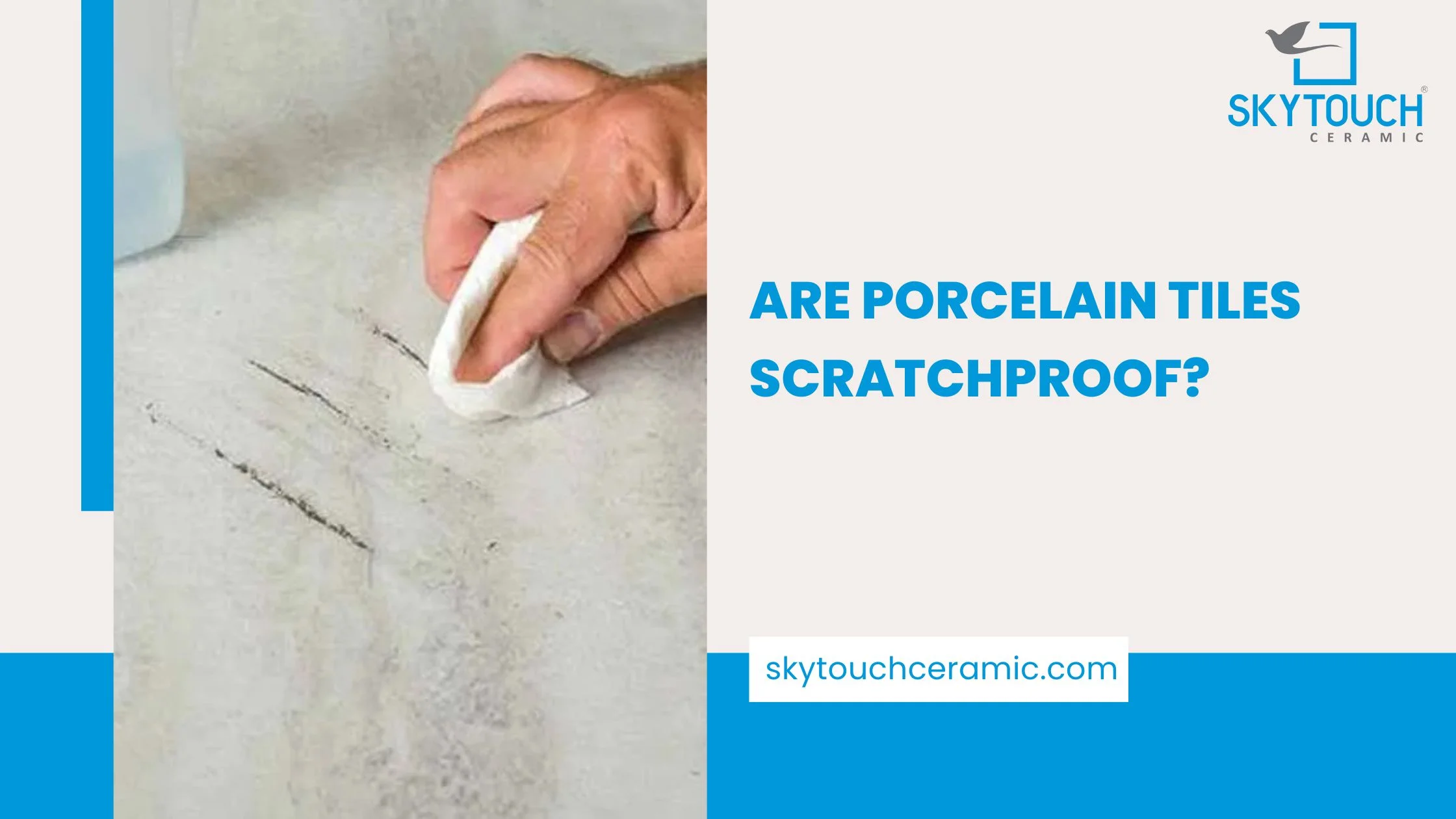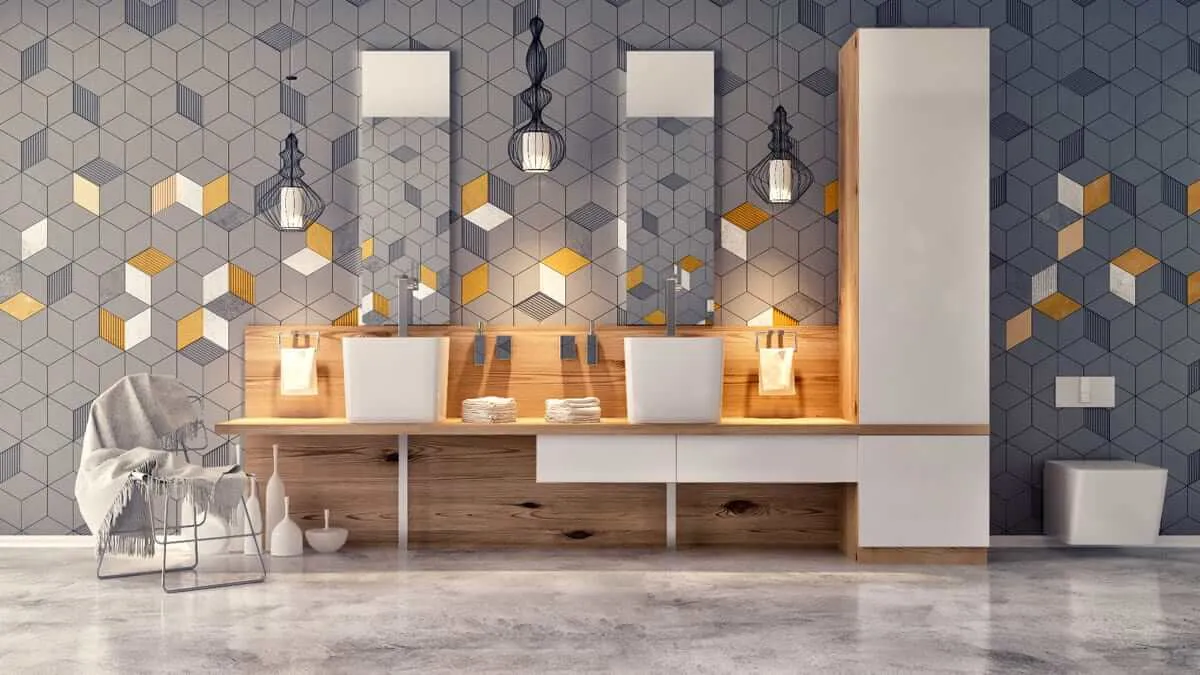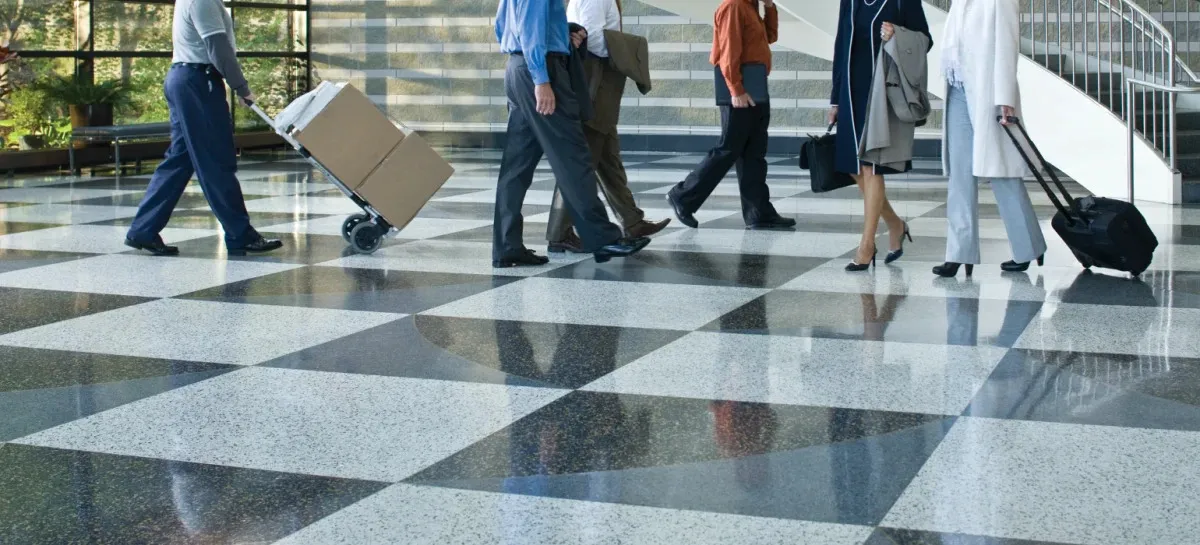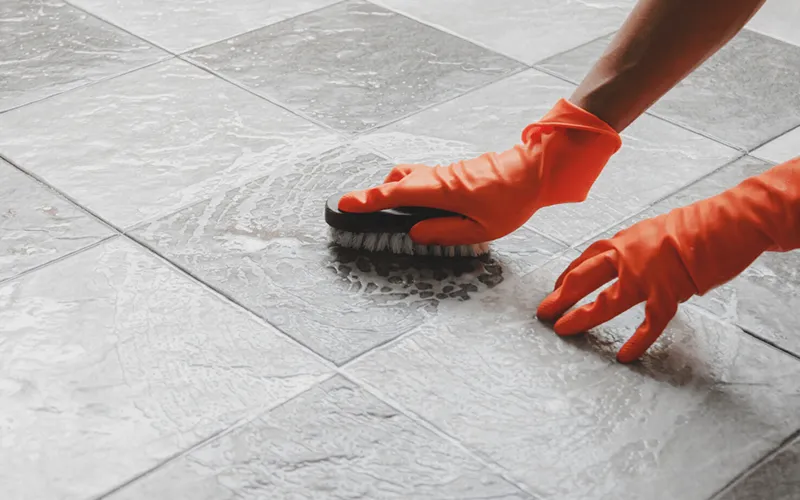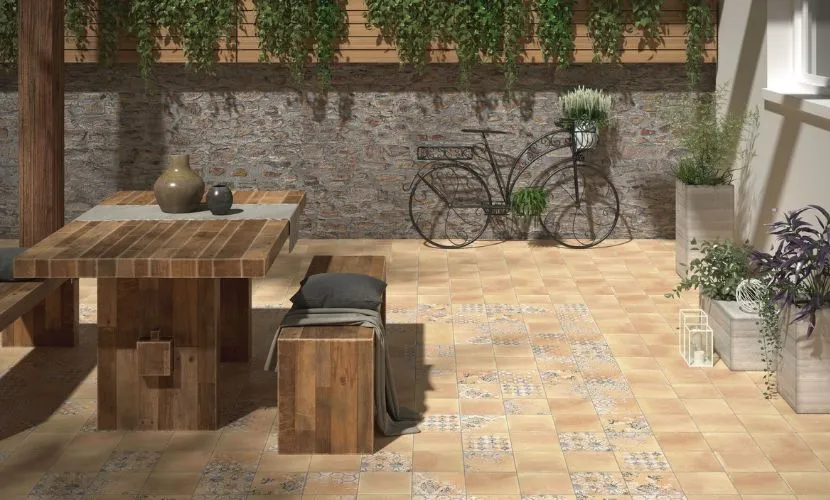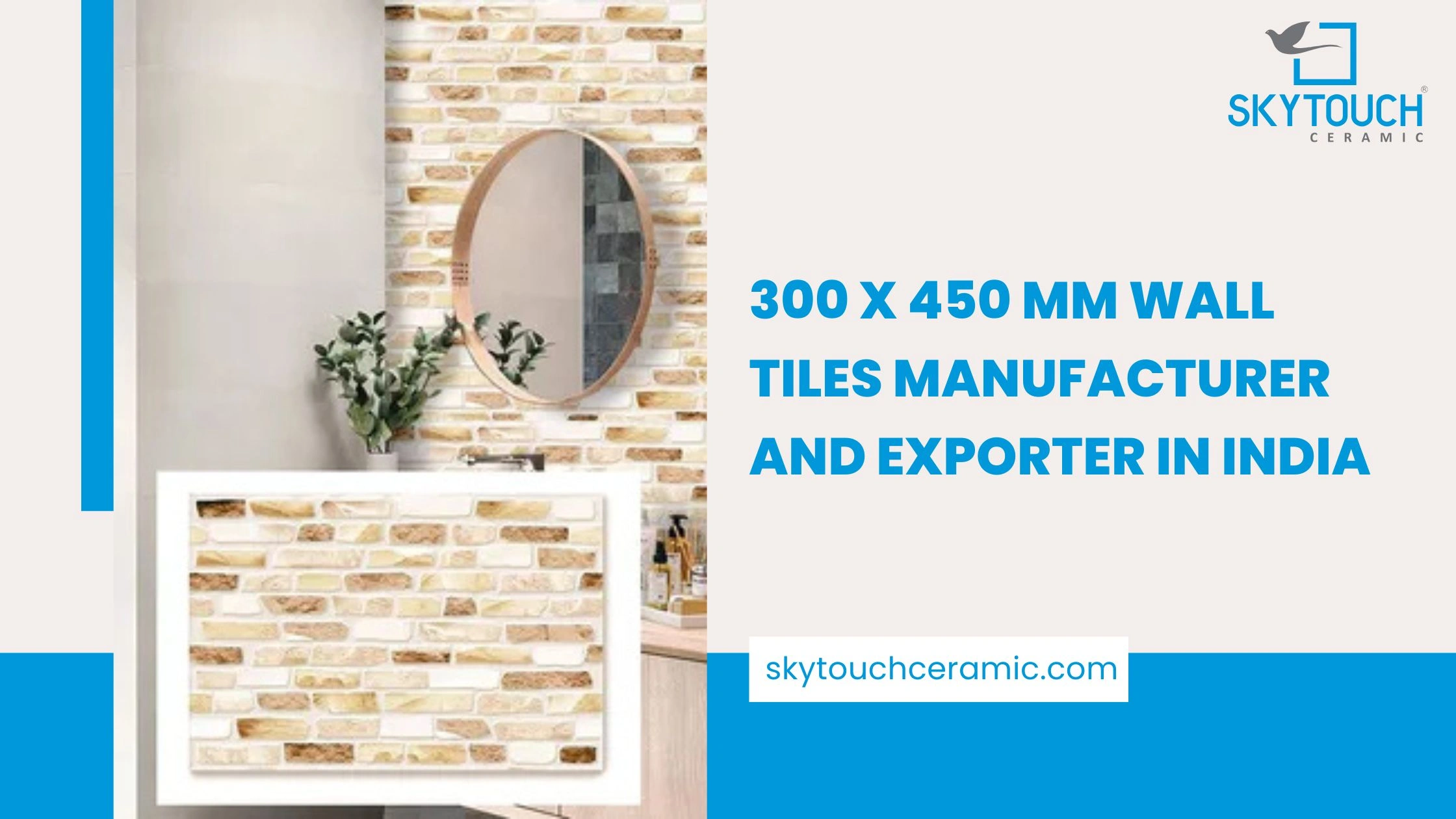So you're thinking of installing porcelain tile floors in your home. Great choice—porcelain tile is durable, low maintenance, and stylish. But you have one lingering question before you commit: Are porcelain tiles really scratchproof? The short answer is no, but porcelain tile is highly scratch-resistant. Porcelain tile is made from refined clay that's fired at an extremely high temperature, making it denser and harder than ceramic tile. This high-density, low-porosity composition makes porcelain tile nearly impervious to scratches under normal residential use and traffic. While no flooring material is 100% scratchproof, porcelain tile comes pretty darn close. With proper care and maintenance, porcelain tile floors can stay looking like new for decades. Read on to get the details on porcelain tile scratch resistance and learn some tips to keep your floors scratch-free.
What Are Porcelain Tiles?
Porcelain tiles are made from clay that's fired at a much higher temperature than regular ceramic tiles. This results in a tile that's harder, denser, and less porous.
Porcelain tiles are very durable and scratch-resistant, but not scratchproof. Their dense, non-porous surface makes them highly resistant to scratches, stains, and damage from exposure to heat or moisture. However, they can still be scratched by sharp or abrasive objects like knives, screwdrivers or unglazed ceramic pots.
Buy High Quality Porcelain Tile
While porcelain tiles are not completely scratchproof, their scratch resistance is far superior to natural stone or ceramic tiles. For most residential and commercial applications, porcelain tiles provide excellent durability and protection. With proper care and maintenance, porcelain tiles can last for decades without showing signs of wear or damage.
Are Porcelain Tiles Scratch Resistant?
Are porcelain tiles scratchproof? The short answer is no, but they are highly scratch-resistant. Porcelain tile is made from finely ground sand and clay that's fired at extremely high temperatures, making it denser and harder than regular ceramic tile.
• Surface Hardness
The high heat used in manufacturing porcelain tile results in an incredibly hard, dense surface that can withstand a great amount of pressure and scratching. Porcelain tiles typically have a PEI rating of 5, the highest level, meaning they're suitable for heavy residential and commercial traffic.
While porcelain tile won't scratch easily under normal use, certain materials can still cause damage. Objects like metal furniture legs, pet nails, and grit or sand on shoes may scratch the surface over time. Using furniture sliders, keeping pets' nails trimmed, and wiping shoes before entering can help minimize scratches.
• Sealing Protection
Applying a sealant to porcelain tiles provides an extra layer of protection for the surface. Sealants fill in microscopic pores and create a protective coating that resists stains, scratches, and wear. Reapplying a sealant every few years will maintain protection.
So can porcelain tile scratch? Technically yes, but under typical residential conditions, porcelain tile should remain scratch-free for many years with proper care and maintenance. For high-traffic, commercial installations, porcelain tile is an excellent choice for durability and longevity. With a little preventive protection, porcelain tile can withstand scratches and continue looking like new.
Factors That Impact Scratch Resistance
Porcelain tile is highly scratch-resistant, but not completely scratchproof. Several factors determine how well porcelain tiles will withstand scratches and marks.
• The Tile's Hardness
The harder the tile, the more scratch-resistant it will be. Porcelain tiles rated PEI 4 and above are considered "commercial grade" and the most scratch-resistant. Tiles with a PEI 3 rating can still stand up well to home traffic, while softer tiles (PEI 2 and below) will show scratches more easily.
• The Finish
Porcelain tiles with a polished finish or honed finish tend to show scratches more prominently than those with a textured finish like matte or wood-look. The subtle texture helps to camouflage small scratches and imperfections. Glazed porcelain tiles also tend to be slightly more scratch-resistant than unglazed tiles.
• Proper Installation
How the tiles are installed also impacts their scratch resistance. When tiles are uneven or improperly spaced, dirt and debris can build up in the grout lines and scratches are more likely. Using a quality tile sealer on the grout helps prevent staining that can make scratches stand out.
• Sealant Application
Applying a sealant, like a penetrating tile sealer, provides an invisible protective barrier. Sealants fill in tiny pores and imperfections in the tile surface, making it more difficult for scratches to form. Re-apply the sealant every few years or when water no longer beads on the tile surface.
• Daily Use and Maintenance
The way you use and maintain your porcelain tiles greatly affects their scratch resistance. Use protective pads under furniture and wipe up spills immediately. Sweep or vacuum tiles regularly to remove loose dirt and grit. Mats both inside and outside entryways help minimize scratching from foot traffic.
With the proper hardness, finish, installation, sealant, and care, porcelain tiles can remain largely scratch-free and beautiful for many years. Paying attention to these factors will help ensure your tiles look as flawless as the day they were installed.
Tips to Prevent Scratches in Porcelain Tiles
• Use furniture pads under heavy furniture like tables, chairs, and appliances.
• Place protective pads under furniture when moving it across floors.
• Use a chopping board rather than cutting directly on the countertop.
• Avoid dropping heavy or sharp objects on tile floors and countertops.
• Use a cutting board to prepare food rather than cutting directly on the countertop.
• Use protective placemats, coasters, and trivets when placing hot items on tile countertops or tables.
• Sweep and mop tile floors regularly to remove grit and debris that can scratch the surface.
• Seal grout lines to prevent staining and make floors easier to clean.
With proper care and by following some basic precautions, you can keep your porcelain tiles looking scratch-free and beautiful for years to come.
Scratch Resistance Comparison: Porcelain vs. Ceramic Tile
| Feature | Porcelain Tiles | Ceramic Tiles |
| Scratch Resistance | Very High – Dense and hard surface, less prone to scratches. | Medium – Softer than porcelain, more prone to scratching. |
| Material Composition | Made from refined clay and minerals, fired at high temperatures, making it denser and more durable. | Made from clay and fired at lower temperatures, making it less dense and more prone to damage. |
| Durability | Extremely durable, perfect for high-traffic areas. | Less durable than porcelain, suited for light to moderate traffic. |
| Best for | High-traffic areas like kitchens, hallways, and bathrooms. | Residential areas with light traffic. |
| Maintenance | Easy to clean, requires occasional grout maintenance. | Easy to clean, but may need more attention due to softness. |
| Scratch Repair | Difficult to repair; scratches are less noticeable due to high durability. | Can be difficult to repair; scratches are more noticeable. |
How to Keep Porcelain Tiles Looking New
To keep your porcelain tiles looking their best for years to come, follow these tips:
• Seal the Grout
Grout is porous and can absorb stains, odors, and moisture over time. Apply a sealant, like grout sealer or tile and grout sealer, within 48 hours of installation and reapply every 6-12 months. Sealing the grout will protect it from damage and keep your tiles looking new.
• Clean Regularly
Sweep or vacuum porcelain tiles regularly to remove grit and dirt. Mop or wipe down tiles at least once a week with a damp mop or cloth and a mild detergent or tile cleaner. For tough stains, use a non-abrasive scrubber or scrubbing pad. Avoid using abrasive cleaners, strong detergents and alkaline cleaners which can dull the finish.
• Address Spills Immediately
Blot up spills like coffee, tea, or juices immediately. Don’t let the liquid pool on the floor. For dried-on messes, use a razor blade scraper or scrubber to gently loosen the stain from the surface of the tile before wiping it away.
• Protect from Scratches
Place protective pads under furniture and appliances. Chair legs, tables, and appliances can scratch porcelain over time. Felt pads, sliders, or protective mats/rugs under these items will help prevent surface scratches and scuffs.
• Re-polish or Re-seal (optional)
For a high-gloss finish, re-polishing porcelain tiles with a tile polish or sealant once a year or so can help restore the shine and provide additional protection. Check with your tile manufacturer for their recommendations on appropriate products.
By following these porcelain tile care tips, your flooring will stay looking new for years while avoiding damage. With regular maintenance and prevention, porcelain tiles can remain scratch-resistant and stylish.
FAQ On Porcelain Tile Scratch Resistance
When it comes to scratch resistance, porcelain tile can be a mixed bag. As with many flooring types, some porcelain tiles are more scratch-resistant than others. Here are some frequently asked questions about porcelain tile scratch resistance to help set the right expectations.
1. Are all Porcelain Tiles Scratch-proof?
No, not all porcelain tiles are scratch-proof. While porcelain tile is very durable overall, some tiles are more scratch-resistant than others. Porcelain tile hardness is measured using the PEI rating system, which rates tiles from 0 (not scratch-resistant) to 5 (most scratch-resistant). For high-traffic, barefoot areas like kitchens and bathrooms, choose a tile with a PEI rating of 3 or higher.
2. What Factors Affect Scratch Resistance?
Several factors determine how scratch-resistant a porcelain tile will be:
• Hardness and density: More dense, harder tiles made of highly compressed clay tend to be most scratch-resistant. Softer, less dense tiles can scratch more easily.
• Finish: Porcelain tiles with a matte or textured finish tend to be slightly more scratch-resistant than high-gloss finishes, which can show scratches and marks more easily.
• Quality and type: Higher quality porcelain tiles that are vitrified (extremely dense) or full-body (pattern goes all the way through the tile) tend to be most scratch-resistant. Cheaper, non-vitrified tiles scratch more easily.
3. How Can I Prevent Scratches?
While you can’t eliminate scratches, there are some tips to help minimize scratches in porcelain tile:
• Choose a durable tile with a high PEI rating, especially for high-traffic areas.
• Apply a sealant or topical coating, which can help prevent surface scratches and stains. Reapply as directed.
• Place protective pads under furniture and appliances.
• Use felt pads or sliders under chair legs and other furniture.
• Vacuum, sweep, and mop regularly to remove grit and debris that can scratch the floor.
• Avoid walking on tile floors with high heels or shoes that can damage the surface. Bare feet or socks are best.
With the proper tile choice and care, porcelain tile can remain largely scratch-free and beautiful for years to come. But keep in mind, that some minor surface scratches are inevitable over time, even with the most scratch-resistant porcelain tiles.
Conclusion
So there you have it. Porcelain tiles are extremely durable and scratch-resistant, but not completely scratchproof. With normal foot traffic and daily use, porcelain tiles should hold up great and look as good as new for many years. However, dropping heavy or sharp objects can potentially cause scratches or chips. Porcelain tile is a fantastic choice for high-traffic, high-use areas like kitchens, bathrooms, and entryways, but no tile is indestructible. If scratch resistance is a top concern, consider darker-colored porcelain tiles which help hide small imperfections, or choose a tile with a textured or patterned surface. And of course, avoid dragging furniture across the floor! By understanding the strengths and limitations of porcelain tile, you can make the best choice for your needs and ensure your floors continue to look beautiful for life.

